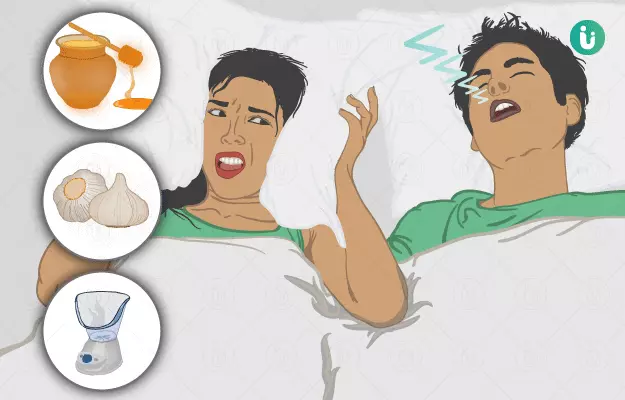Snoring is a common issue faced by many. As much it is a physiological problem, it is also a nuisance, disturbing your sleep and increasing daytime fatigue and sleepiness. Snoring is mainly caused by an obstruction in the airways, which could be due to loose muscles, a long soft palate or extra fat around the throat. However, it may also be indicative of an underlying condition like a deviated nasal septum or sinus infection. Sleeping posture, age, obesity and lifestyle factors also influence snoring habits.
A condition called sleep apnoea is also marked by loud snoring during sleep. This is mainly caused by an obstruction in the airways, which makes it difficult to breathe for a few seconds. However, central sleep apnoea is due to interference in brain signals. Nonetheless, sleep apnoea increases the risk of cardiovascular diseases and memory problems.
While dental mouth devices, nasal strips and surgeries are available as treatment options for snoring, if there is not an underlying condition, you can opt for some easy home remedies to alleviate the possible reasons.
So buckle up because it’s going to take some determination to change your lifestyle habits.

















